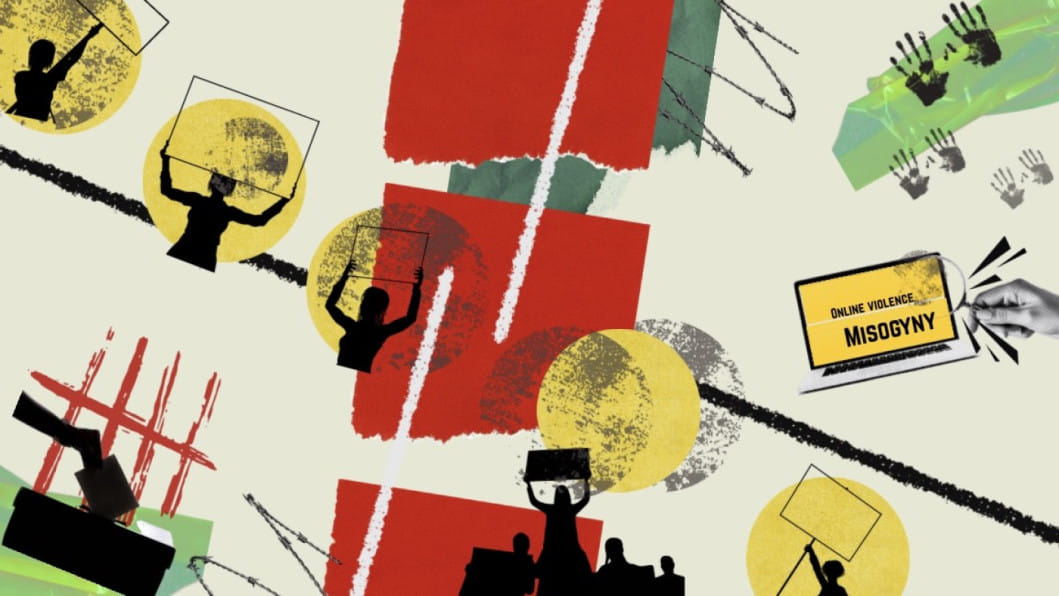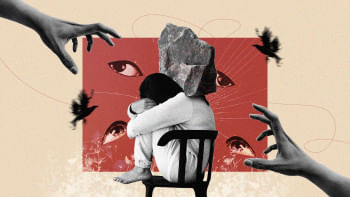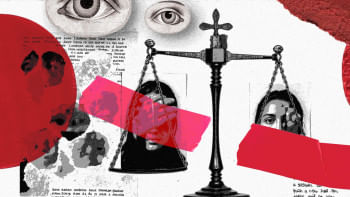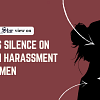Threatening to gang-rape is not just vile, it’s a crime

A Dhaka University student has been suspended for six months for advocating online that a female student, a candidate in the upcoming Dhaka University Central Students' Union (DUCSU) elections, be "gang-raped." His dangerous comment drew some like-minded individuals (read potential rapists) to agree with him and make the same statement.
Ali Husen's Facebook status threatened to organise a "march for gang rape" against BM Fahmida Alam, who represents the left-leaning panel "Aparajeyo '71, Odommo '24", because she had filed a writ petition against the nomination of SM Farhad, a general secretary candidate from the Islami Chhatra Shibir-backed United Student Alliance.
Following her writ petition, the High Court on September 1 stayed the DUCSU election process until October 30. However, an hour later, the Appellate Division's chamber judge overturned the stay order. This was when Husen posted his disgusting status that encouraged others to join in the misogynistic parade.
It would be easy to dismiss this as a one-off incident in which a male student expressed anti-woman sentiments, but we all know that it is far more complex and insidious than that. Ali Husen was using an age-old weapon to humiliate and "cancel" a young woman for daring to challenge a man, even having the audacity to stand as a candidate. Many students might have been angry that Fahmida had filed the writ petition, which could result in the postponement of the DUCSU elections. But embedded in a threat of sexual violence involving multiple rapes is a subtle design to create an environment that would remove women from the public sphere, in this case from an election.
This attempt to "invisibilise" women from public forums has become a common trend advocated by rightist groups. The venom spewed by various religion-based groups against the Women's Affairs Reform Commission, calling for its disbandment and hurling abuses at its members, was enough proof of the "political will" to make sure women's place in society remains unequal and marginalised. More disappointing was the total silence from the interim government led by a known champion of women's empowerment and which has at least three women advisers who are well-known feminists. During the National Consensus Commission's laborious dialogues with the country's political parties, the reform proposals of the Women's Affairs Reform Commission were conspicuously kept out of the discussions. So were women—not a single one was seen in the photographs or video footage of the discussion sessions. Perhaps because it was obvious that most of the proposals would be met by vehement opposition. When it came to women's reserved seats, all parties agreed that the existing 50 seats would be kept and that they would keep five percent of nominations for women in the next elections. Oh, what HUGE concessions to half of the population! Should we, the lowly women, all jump with joy? Oh, sorry, not allowed.
In the field, women student leaders of the July uprising were sidelined either by being kept out of the forums or parties (except for a token few) or through more malignant strategies—by attacking them online with fake images, lies, and direct threats. Men have physically assaulted women on a launch, in the streets, on campus, and on the beach, all in the name of moral policing. The recent violent attacks on Chittagong University students by locals was sparked by the alleged assault of a female student by the security guard of the building she lived in because she had come home late, after 11pm. According to her, when she tried to enter through the gate of the building, the guard shoved and kicked her. On Monday, a female student of Jahangirnagar University was pushed off a moving bus by the helper as soon as she mentioned the name of her university as her destination. Women pursuing higher studies seem to be an irritant for some, triggering violent acts. It is as if there is a systematic strategy to just remove women from all public spaces.
Thus, for Ali Husen and his kind, threatening to "gang-rape" a woman does not seem to be a crime, which it definitely is. It is a way to "teach unruly women a lesson," to hopefully erase them from the public sphere.
His six-month suspension as punishment is shocking. Do the university authorities think that after six months he will stop believing that gang rape is justified in certain circumstances? Is there any guarantee that he or his followers will not post such statuses or even follow through with these threats? Did anyone think of the security of Fahmida and other female students who may now be targeted by Ali Husen's fans?
Threatening sexual violence is nothing less than a crime. It constitutes "criminal intimidation to cause injury or grievous hurt" (under Penal Code, 1860), and is also an offence under the Cyber Protection Ordinance, 2025. There is no scope to take such threats lightly. From January to July this year, 123 gang rapes were reported in Bangladesh, according to Ain o Salish Kendra. This man and anyone else who publicly post or air such statements must be taken into custody and punished under the law. Most importantly, they should not be garlanded and cheered for their criminal act.
Aasha Mehreen Amin is joint editor at The Daily Star.
Views expressed in this article are the author's own.
Follow The Daily Star Opinion on Facebook for the latest opinions, commentaries and analyses by experts and professionals. To contribute your article or letter to The Daily Star Opinion, see our guidelines for submission.

 For all latest news, follow The Daily Star's Google News channel.
For all latest news, follow The Daily Star's Google News channel. 











Comments